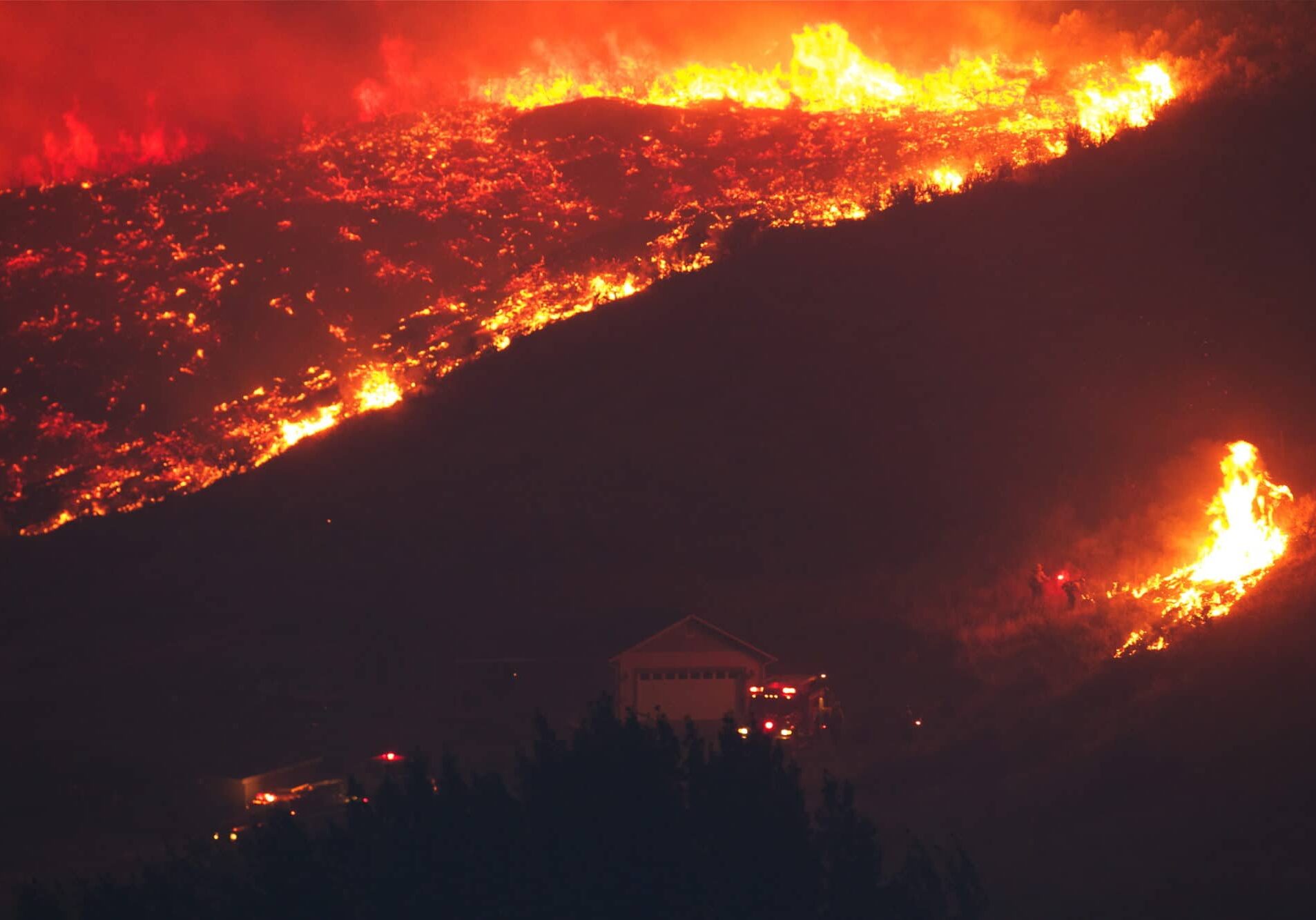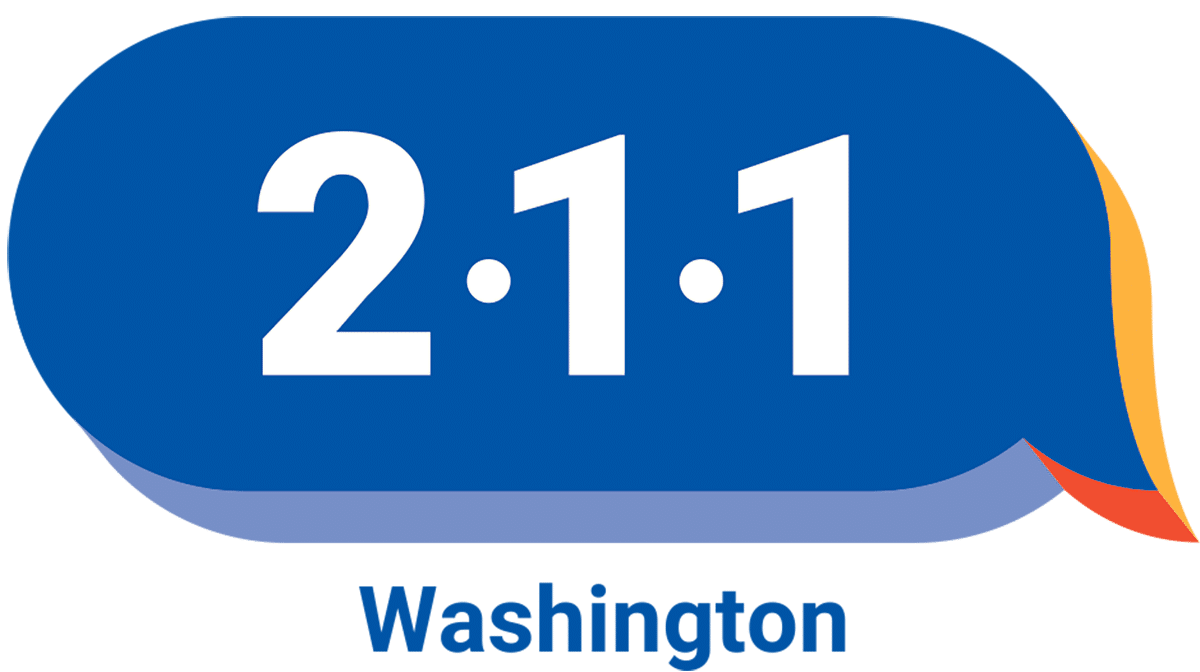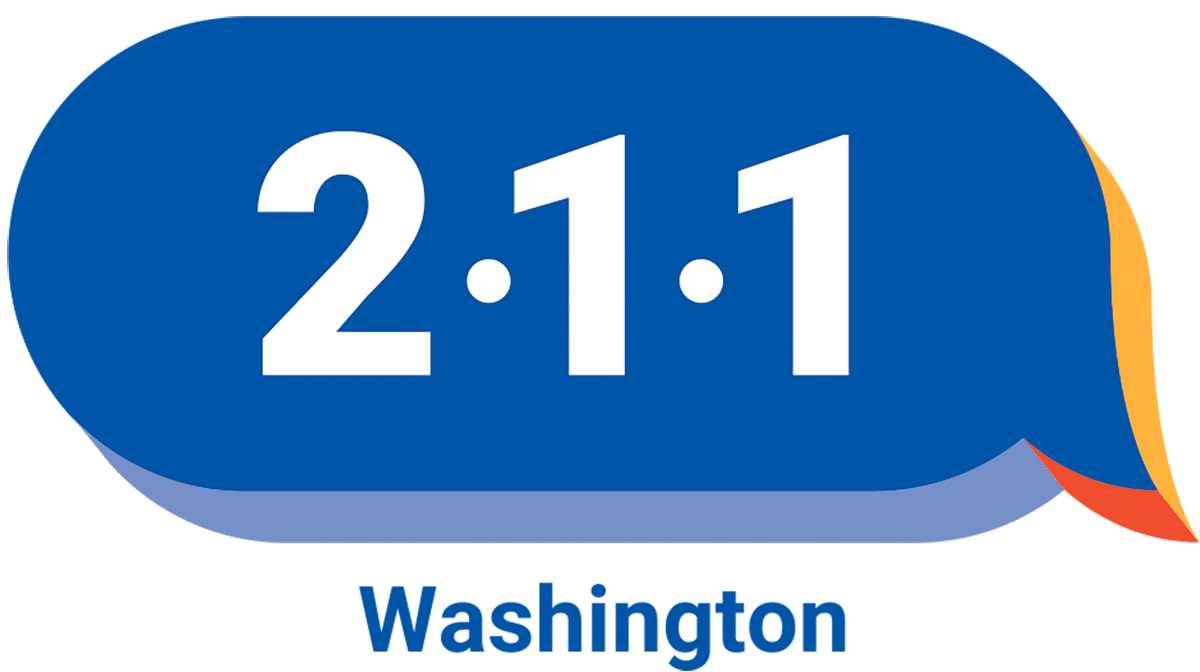What is 211
WA 211 is where help starts. Free and confidential, 211 is more than a number. It's connection, hope, and a shortcut through what can be a bewildering maze of health and human service agency phone numbers. whether its help keeping your lights on or referring you to a local food pantry, 211 is always ready to assist you in finding the help you need.
Every day WA 211 helps those who are elderly and/or disabled, those who do not speak English, those who may be having a personal crisis, those who have limited reading skills, and those new to their communities.
Find our latest reports here.
How can we Help?
Select a method that works best for you.
When you call, a real person is on the other end, ready to help.
How 211 Works
Dial 211 from anywhere in Washington State and you will reach a highly-trained information and referral specialist who will assess your needs and provide a list of referrals to available resources in your community. Washington 211 has a database of over 27,000 resources to help you find the right services. Referrals are usually given over the phone or can be emailed or text to you. In crisis situations a warm transfer can be made directly to crisis specialists or 9-1-1. TTY for the deaf and hard of hearing and interpreter services are also available in 140+ languages.
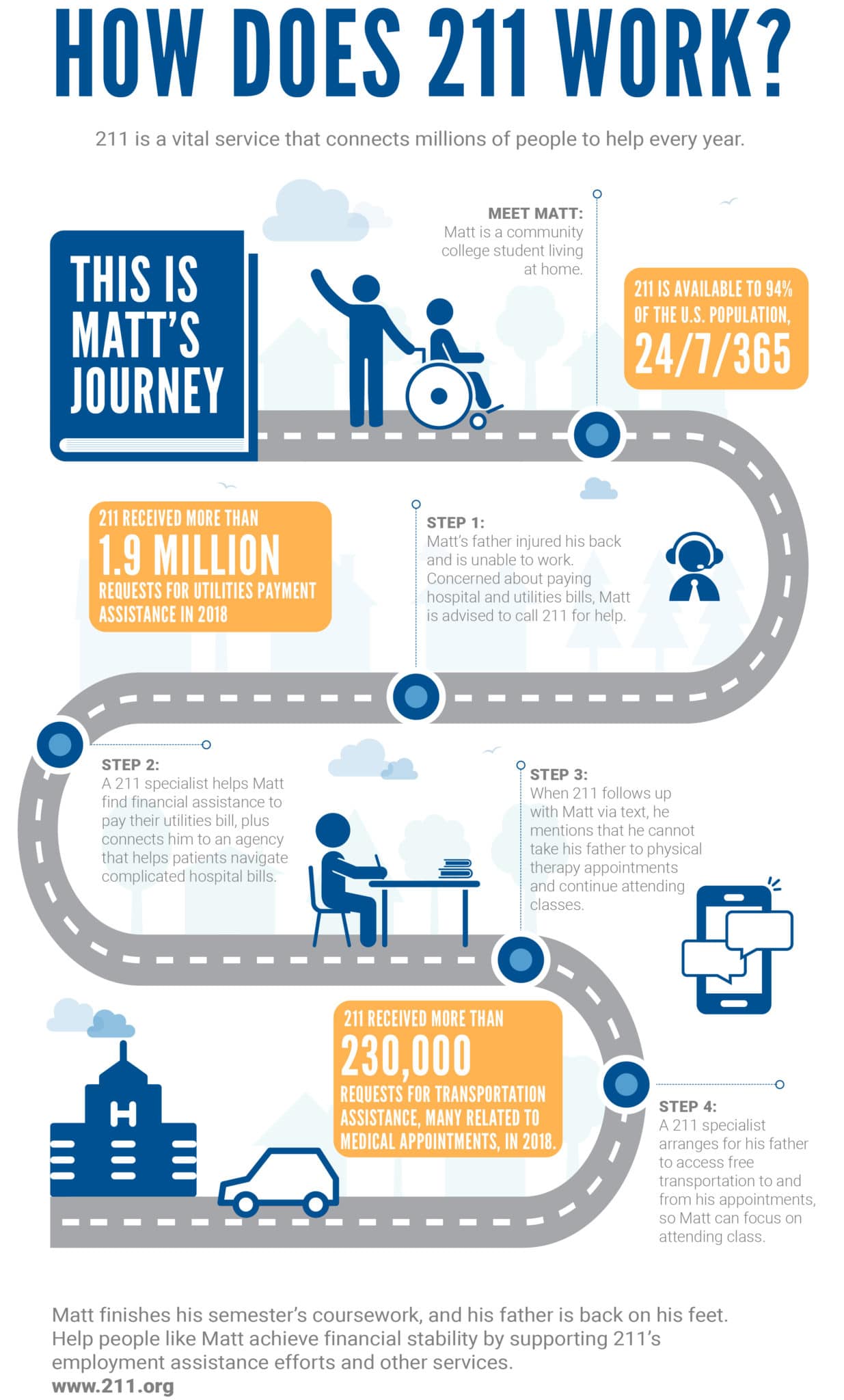
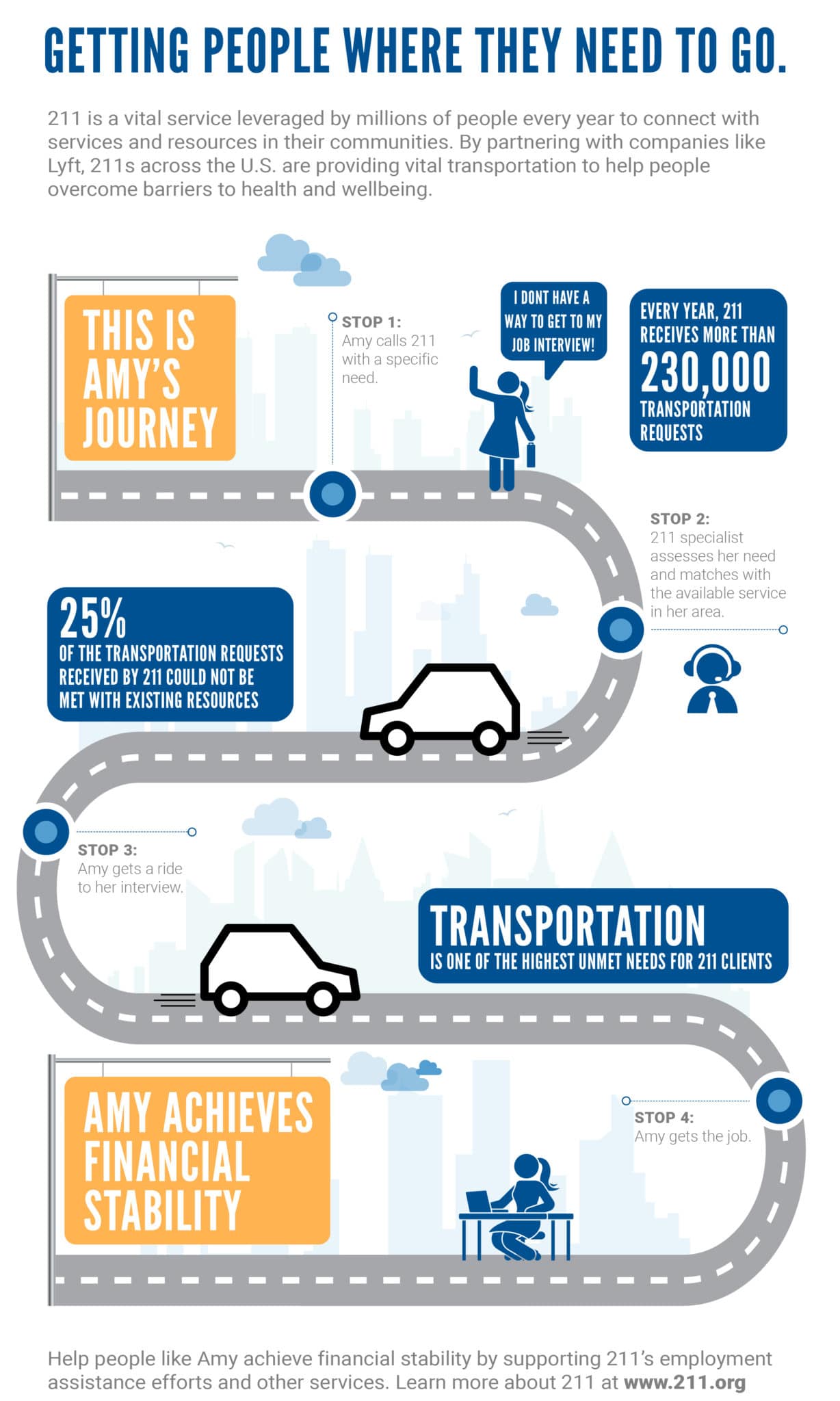
Need data on resources and community needs? For Social service and Health Organizations, Community and Government agencies, WA 211 has what you need.
- Washington 211's comprehensive database of resources can provide the foundation for specialized resource databases or for care coordination and closed looped referral systems.
- Washington 211 tracks the location and type of services callers are asking for or searching for on-line and the types of referrals that are made, providing accurate, unbiased, real time information about community needs and gaps in services to create custom needs assessments.
- You can access 211 data on 211 Counts which is a data dashboard that provides real-time searchable data in simple-to-use format. Using 211 Counts, you'll find a snapshot of community-specific needs displayed by ZIP code, region or call center as recently as yesterday, enabling you to easily check trends, make comparisons and share information.
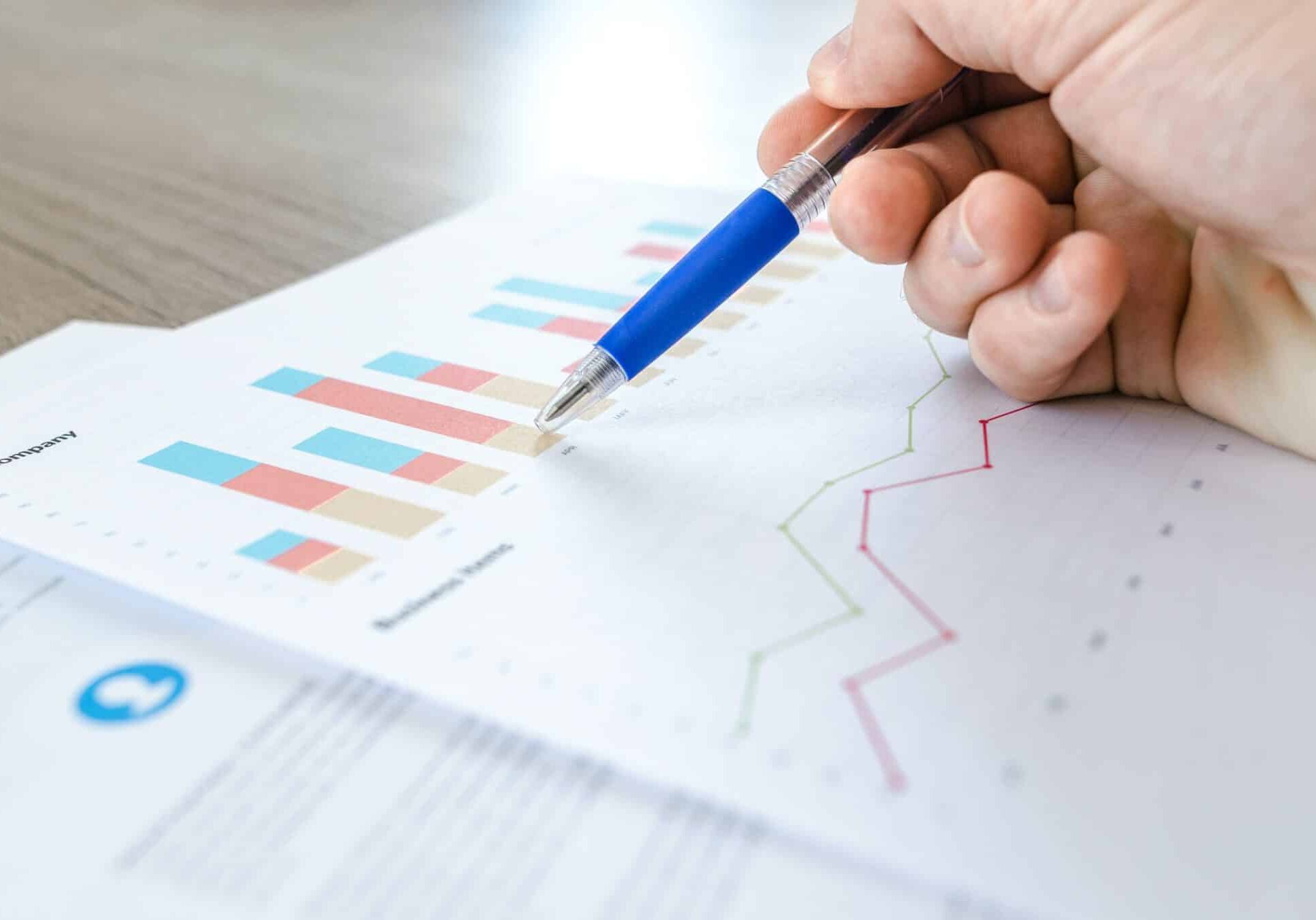

211 History and Facts
- May 6, 1997, United Way of Metropolitan Atlanta adopted 211 as a simple, easy number to call when people want to help or when they need access to human services.
- In 2000, United Way of America petitioned the Federal Communications Commission to assign 211 as the abbreviated dialing code for consumer access to community information and referral services and was approved later that year.
- In April 2004, WIN211, later renamed Washington 211, was incorporated as a nonprofit 501(c) (3) organization.
- In 2003, the Washington State Legislature passed ESHB 1787 in support of the creation of a 211 system for the state and recognized Washington 211 (WA211) as the lead organization.
- February 11, 2006, the first 211 call was answered in the State of Washington.
Disaster Relief
- 211 is a partner in the state's emergency management plan
as well as many local and regional plans. - 211 has the ability to mobilize statewide during times of disaster.
- 211 relieves pressure on the 9-1-1 phone system for non-emergency calls (Up to 20% of 9-1-1 calls are non-emergency).
- 211 is a central point of contact for emergency responders to share up-to-date information on shelter locations, evacuation, routes, road closures and public health advisories.
- 211 assists community efforts by coordinating community volunteers and donations.
- Washington 211 has been called into action for wildfires, flooding, landslides, winter storms, man made disasters and health pandemics.
